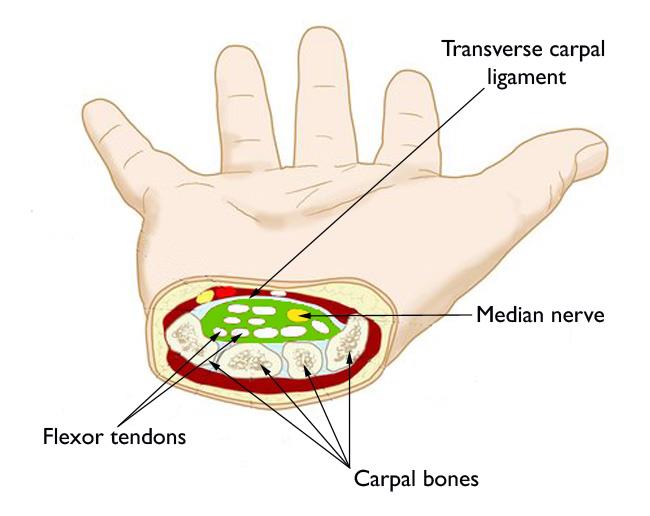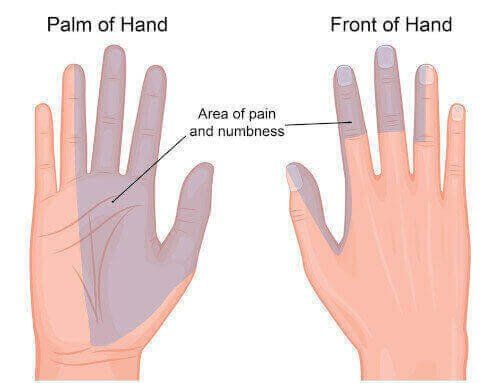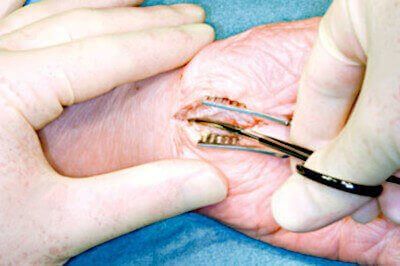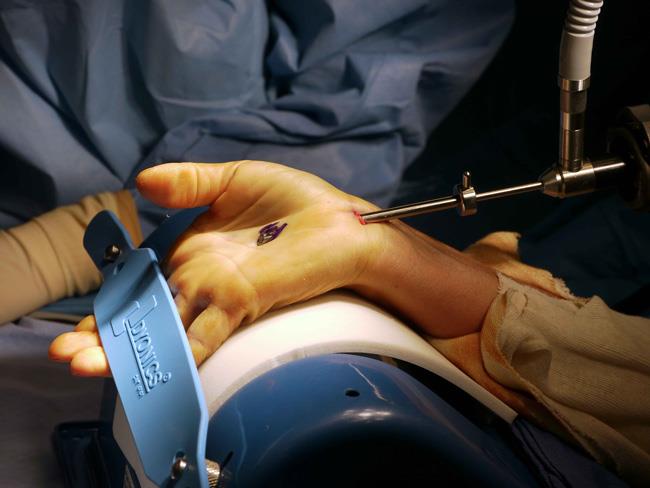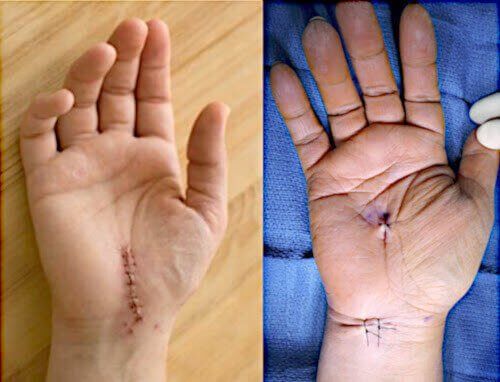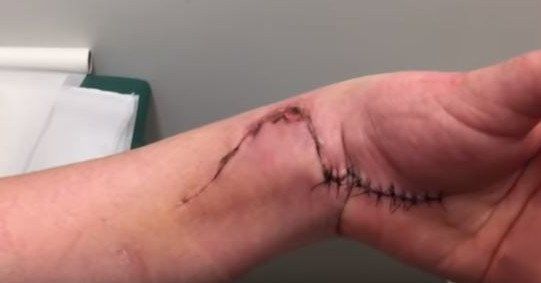What's Recovery for Carpal Tunnel Surgery Like?
If you're having surgery for carpal tunnel syndrome, it's important to plan ahead: your recovery for carpal tunnel surgery may go quickly or last many months. Rarely, it can even last years.
No one can predict for certain how long your recovery will take because it's different for everybody. But certain conditions are known to make your recovery time easier, instead of longer and more painful. These conditions are discussed below.
Why you need carpal tunnel surgery
Before discussing recovery for carpal tunnel surgery, let's understand why your doctor recommended this operation. The
American Academy of Orthopedic Surgeons (who regulate and monitor this procedure) advises doctors to recommend carpal tunnel surgery only when patients meet 3 requirements. These are:
- You must be diagnosed with
severe
carpal tunnel syndrome.
- Symptoms must be at least 6 months old.
- You tried every
non-surgical remedy, but they failed to provide relief.
How do you get carpal tunnel syndrome?
Symptoms of carpal tunnel syndrome
Type of carpal tunnel surgery you'll have
Everybody who undergoes carpal tunnel surgery will have one of two basic types of operative procedures:
Both operative techniques have significant
pros and cons associated with them. But the aim of each technique is identical;
to allow access to your wrist's interior. This lets the surgeon see your
transverse carpal ligament. Then he or she uses a scalpel to cut it in half.
The reason for cutting the ligament is to free up more space inside the wrist joint. Think of it like cutting the string of an archery bow. When the ligament is cut, the bones snap apart much like the bow would. The result is that more space is created, which
decompresses
the median nerve. Doing so relieves the symptoms of the crushed median nerve.
Both operative procedures take about 45 minutes to complete. They're usually performed on an outpatient basis. The
cost of carpal tunnel surgery can vary greatly between the procedures.
Factors affecting recovery for carpal tunnel surgery
The aim of your post-surgical recovery period is to allow your hand to heal naturally and restore it's function.
Recovery for carpal tunnel surgery and restoring hand function depends on several factors.
Chief among them are the type of surgery you have (open versus endoscopic). But other factors are also important and include:
- Your particular healing abilities
- Age
- Smoking status
- Obesity
- Commitment to physical therapy and rehab
- Other pre-existing conditions (comorbidities)
- Overall aftercare quality
Your carpal tunnel release surgery is just one step in the process of treating carpal tunnel syndrome. After your actual operation, your recovery will go through 3 distinct phases. These are:
- Recovery room
- Immediate aftercare at home
- Longer term aftercare and rehabilitation
Phases of recovery for carpal tunnel surgery
1. Recovery room
When the operation is finished the surgeon will stitch the incision(s) closed. Then your hand is bandaged with sterile gauze along with thick padding. From the operating room you're wheeled into the recovery room where you'll spend the next 1-2 hours.
You'll see other recovering patients here too. Everyone is monitored to insure there isn't a post-surgical problem like:
- Reaction to anesthesia
- Excessive pain
- Nausea or vomiting
- Breathing problems
- Drop in blood pressure (hypotension)
- Unusual bleeding
You may feel like just a number in the recovery room. But don't worry; patients are stacked like this for efficiency, and the medical staff will take good care of you. If there's a problem, the staff will be sure to correct it.
If the doctor gave you general anesthesia you might feel yourself shivering. This is normal. A postsurgical nurse can administer a drug to keep the shivering to a minimum. You'll also have a warm blanket which should stop the shivering altogether.
Nausea and vomiting after surgery is also common. It's usually due to the anesthesia. Normally it goes away quickly on its own.
Your pain level is closely monitored. Whether you had local or general anesthesia, your hand will start to hurt. But the nurse will give you a pain drug to dull the sensation.
Within 3-4 hours of the operation, the doctor will see you again to determine if you're well enough to be discharged. Be sure to tell the doctor about any abnormal or unusual feelings (aside from the obvious discomfort of the surgery).
You will be discharged to the care of another adult who can safely take you home.
2. Immediate aftercare at home
Recovery for carpal tunnel surgery at home is a big relief. Back in your familiar home environment, you can relax - almost. Within hours of getting home the pain will reach it's maximum. The drugs administered in the recovery room will begin to wear off and the pain will be intense
for the next 1-3 days.
This is why the doctor will have prescribed pain medicines. Take them! Here are other things you can do to help ease the pain:
3. Longer term aftercare and rehabilitation
Potential complications
Either surgical technique (open or endoscopic) may result in complications. Virtually any complication can effect your recovery for carpal tunnel surgery. The more common complications are:
- Return of symptoms
- Unusual or prolonged pain
- Extensive muscle damage
- Scar infection
- Excessive bleeding
- Excessive adhesions or scarring
- Nerve injury
- Hand weakness
- Loss of dexterity
When one or more of these complications occur, your recovery time will certainly be longer. This is why it's important to report any unusual problems to your doctor immediately.
It's not unusual for some patients to deal with complications for months or even years after their surgery. It's also important to note that approximately
50% of patients are unsatisfied with their surgical results by the second year - no matter which surgical technique was used.
Therefore, make sure you absolutely need carpal tunnel surgery to begin with!
Conclusion
Your recovery for carpal tunnel surgery depends on many factors. These factors can make recovery time last weeks, months or even longer. Furthermore, if complications happen you may need to care for your hand for an extended period of time - perhaps even years. Always follow your surgeon's recommendations to lessen pain and ensure your postsurgical recovery is quick and uneventful.



